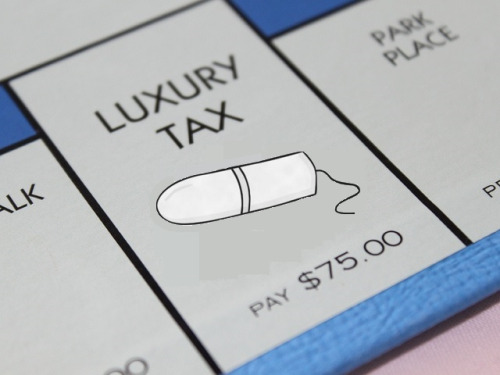
Photo Courtesy of myfeministawakening.tumblr.com
‘Tampon tax’ outlines burden put on females’ wallets
There have always been differences between men and women, whether it be the gender wage gap or the infamous “pink tax.” Women get paid less than men for the same job and have to pay more for products aimed towards women. As if that was not enough, women in most US states are taxed for feminine hygiene products. Here in California, that would be a 7.5 percent regular sales tax.
The term “tampon tax” refers to sales tax put onto feminine hygiene products, also known as menstrual products. A bill in California that was introduced by Assemblymember Cristina Garcia would have ended the state’s tampon tax. Despite the bill passing the state Legislature with unanimous votes, the bill was vetoed by the state’s governor, Jerry Brown.
“Tax breaks are the same as new spending,” Brown says.
It would make sense because Garcia’s office estimated that had the bill been passed, women in California would save $20 million every year.
Items that are free from sales tax include groceries and items deemed as “necessities.” Menstrual products do not fall under this category and are deemed as luxuries. Brown’s decision sparked outrage on the news and on social media because many believed it was discrimination, as the tax only affected women rather than men. Others suggested his decision is biased because he is a man, or that the tax is still in effect because of the taboo regarding periods.
Brown’s main purpose for vetoing the bill concerns the state’s budget. Although the state would have lost a lot of money had the law been passed, the burden of the state’s budget should not be placed on women. Rather than seeing this bill as a tax break for them, more people need to understand that this tax is gender-specific and is discriminatory to women, causing regression in the feminist movement.
It is unfair to consider tampons as luxuries rather than necessities that women need every month. Unlike other taxed goods, women can not opt out and choose an alternative to menstrual products, as people can with prepared meals.